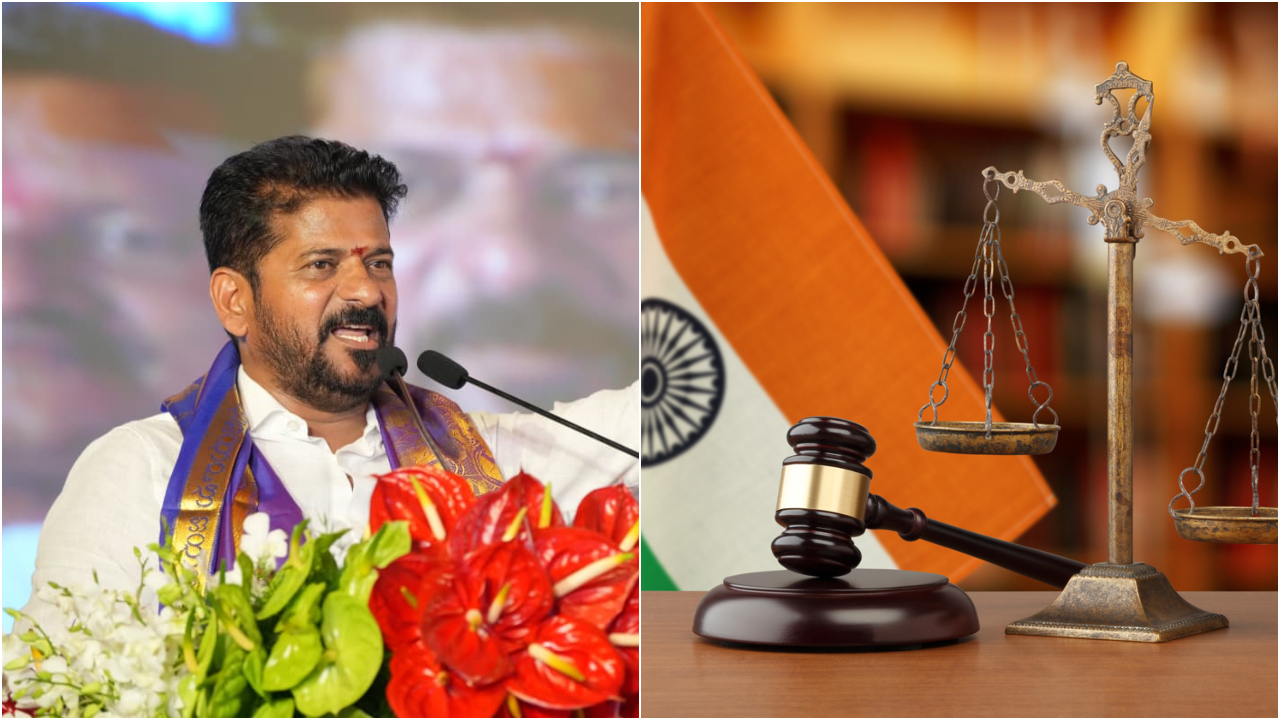The SC petition, filed by agriculturist Vanga Gopal Reddy, challenges GO Ms. No. 9, issued on 26 September by the Revanth Reddy government.
Published Oct 05, 2025 | 3:29 PM ⚊ Updated Oct 05, 2025 | 3:29 PM

Telangana Chief Minister Revanth Reddy. Credit: x.com/revanth_anumula
Synopsis: Legal challenges in the Supreme Court and Telangana High Court threaten to disrupt local body elections over a 42 percent BC reservation, exceeding the 50 percent constitutional cap. Critics argue the 67 percent total quota violates precedents. With elections starting 9 October, judicial rulings may delay or alter the process, impacting seat allocations and the State Election Commission’s schedule.
Two legal challenges — one in the Supreme Court and another in the High Court — now threaten to throw off the course the process of the elections for the local bodies in Telangana.
Both petitions challenge the state’s decision to grant 42 percent reservation for Backward Classes (BCs) in panchayats, MPTCs and ZPTCs.
Critics say the quota breaches the constitutional 50 percent ceiling, casting uncertainty over seat reservations, nomination procedures, and the State Election Commission’s (SEC) election schedule, which begins with nominations on 9 October.
The Supreme Court will hear the case on 6 October, followed by the Telangana HC on 8 October. Legal experts warn that judicial intervention could delay or even derail the five-phase polls scheduled to conclude in November.
The Supreme Court petition, filed by agriculturist Vanga Gopal Reddy, challenges GO Ms. No. 9, issued on 26 September by the Revanth Reddy government.
The order raises BC reservations from 25 percent to 42 percent, taking the total quota—including 15 percent for Scheduled Castes (SCs) and 10 percent for Scheduled Tribes (STs)— to 67 percent. This, the petitioner argues, directly violates the Supreme Court’s 1992 Indra Sawhney (Mandal) judgment, which set a 50 percent ceiling on reservations.
The petitioner cites the 2010 K. Krishna Murthy case and the 2021 Vikas Kishanrao Gawali ruling, both of which reaffirmed the cap in reservations for local bodies. The petitioners also contend that the GO sidesteps legislative procedure.
Bills amending the Panchayat Raj Act is with the Governor and the bill for providing 42 percent quota for BCs in both local bodies and education & employment are with the president.
A bench of Justices Vikram Nath and Sandeep Mehta of the Supreme Court will hear the case on Monday. The court is expected to examine whether a state government can exceed the reservation ceiling through executive action without legislative sanction.
Meanwhile, the Telangana High Court is hearing separate writ petitions challenging the same GO for lacking legal validity without gubernatorial assent. A division bench has issued notices to the state government, the SEC, and the departments concerned. The judges questioned the “urgency” behind issuing the order on 26 September, especially when the amendment bills are still pending.
The petitioner argued that a 67 percent reservation violates Articles 14 and 15 of the Constitution, discriminating against the general category and breaching established precedents.
The Advocate General defended the GO in the High Court, calling it a social justice measure based on the recommendations of a BC Commission. The bench, however, has not stayed the order.
The SEC had issued election notifications on 29 September for Mandal Parishad Territorial Constituencies (MPTCs), Zilla Parishad Territorial Constituencies (ZPTCs), and gram panchayats.
The polls will be held in five phases from 9 October to 11 November, with Phase I polling on 23 October. The model code of conduct is already in force across most districts. However, if the quota is struck down, the SEC may have to revise seat allocations and revert to the earlier system.
(Edited by Amit Vasudev)
